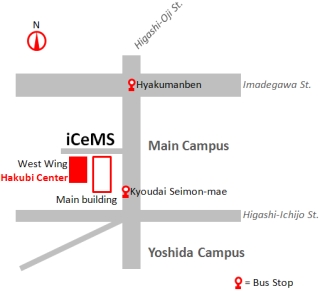Seminar index
3月15日13時に第15期公募情報を公開いたしました。
4月1日13時より応募者登録サイトへの登録が可能です。
Information on the 15th call for applications was opened at 13:00 on 15 March.
Applicants can register on the registration website from 1 April at 13:00.
23rd Hakubi Seminar
Evolution and Behavior of Tree Crop Genomes: How can we apply genome information to practical agriculture?
- Speaker:Takashi AKAGI (The Hakubi Center)
- Date:5th July 2011 (Tuesday), 16:00-
- Venue:The Hakubi Center (iCeMS West Wing 2F, Seminar Room)
- Presentation Language:English
Summary
Tree plants generally have specific characteristics such as prolonged life-cycles, acceptance of heterogeneous genomes (such as inter-genus or inter-ploidy) in their hybridization, and vegetative propagation. These characteristics enable them to experience hybridization among highly diverse genomes under artificial selection via breeding/domestication paths, with the resultant hybrid, bearing superior but genetically unfixed traits, being maintained for as long as a thousand years and more. Such evolutionary paths specific to tree crops would affect the statements and behaviors of their genomes; thus, I propose to deal with these genomes from a new approach distinct from that of herbaceous crop genomes, in which research progress has already been made. In this seminar, I would like to review the following four topics on tree crops: (i) characteristics of their genomes; (ii) present programs of “genomic selection” for breeding; (iii) exploitation of genomic evolution and its practical use in agriculture; and (iv) application of recent discoveries, especially responses to hybridization among heterogeneous genomes. All topics will be considered with respect to their practical application to agriculture.









